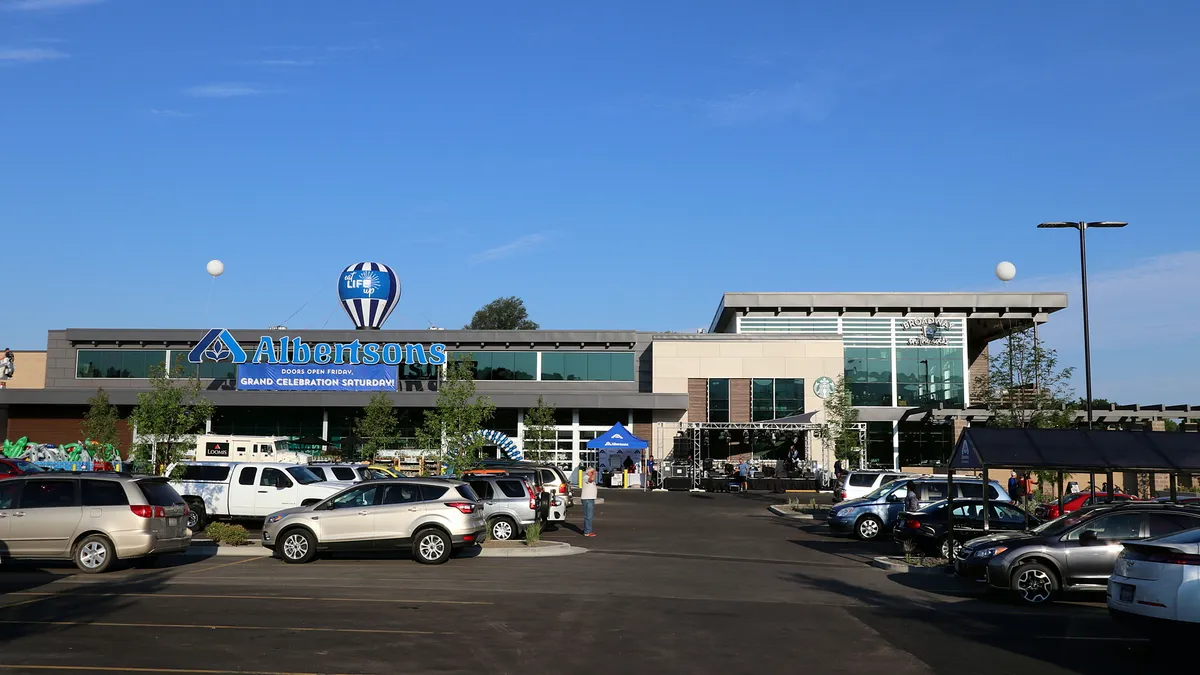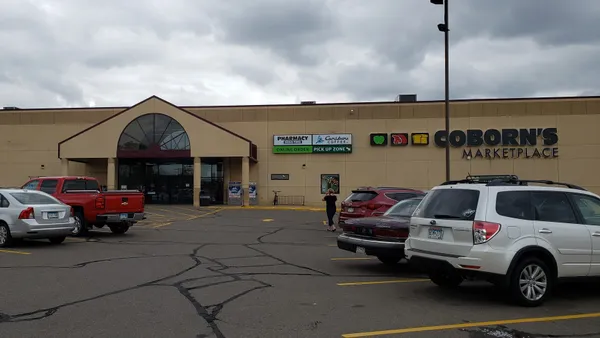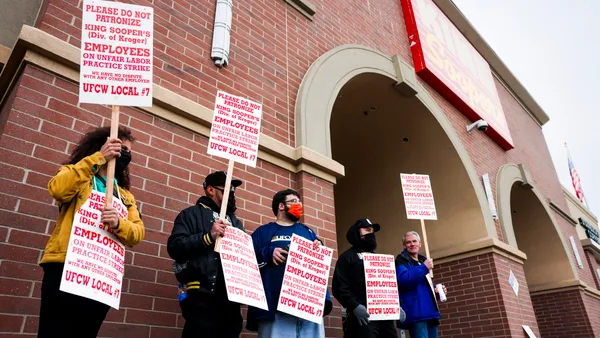Dive Brief:
- Albertsons Companies has filed a registration statement for an initial public offering on the New York Stock Exchange, according to a company release.
- The company, which seeks to be listed under the symbol “ACI,” has not determined the number of shares it plans to offer or the price range it seeks for the offering. The Wall Street Journal reported in January that the company had filed confidentially for an IPO with the Securities and Exchange Commission (SEC).
- Separately, last week Albertsons reached an agreement with union officials representing current and former workers at Safeway stores in Virginia, Maryland and Washington, D.C. The agreement provides higher pay, a continuation of health benefits and, in what was the most contentious issue for both sides, full funding of pensions for employees and retirees, according to the United Food and Commercial Workers Local 400. Details of the agreement were not released, but according to a New York Post report, Albertsons agreed to pay $575 million over the next 25 years to cover 50,000 workers.
Dive Insight:
Could it finally be Albertsons’ time to go public? The company has mounted two major efforts over the past five years — most recently when it tried merge with pharmacy chain Rite Aid — but has had to pull back each time. This time around, the grocery has a healthier balance sheet, with identical sales growing across eight straight quarters while debt has dropped to around three times EBITDA. However, it’s confronting an unstable market and faces the difficult task of convincing investors it can hold its ground against competitors, including Amazon and a resurgent Kroger.
In a letter accompanying its S-1 filing with the SEC, Albertsons CEO Vivek Sankaran said Albertsons is capitalizing on its national scale and prime store locations, and that it plans to continue to grow through merchandising, technology and cost-cutting measures.
“We now benefit from one of the industry’s largest networks of First-and-Main, food retail locations with leading market shares in valuable and growing markets," Sankaran wrote. "It allows us to serve our customers locally, while delivering the advantages of national scale.”
In its filing, the company said it expects growth to come through its fresh departments and own brands as well as digital initiatives and store updates. Albertsons’ store brands now account for more than a quarter of company sales, with sales growth exceeding comp-store growth over the past 11 quarters by at least 100 basis points. The company is accelerating store remodels and has reworked assortments in several hundred stores to accentuate produce and fresh departments. Membership in its Just For U Loyalty program increased 25% over the past year.
The filing also emphasized Albertsons’ growing technology investments, both for consumers and for its operations.
“We are refreshing our entire digital interface to create a more personalized, easy-to-use and fully-integrated digital experience,” the company noted. “We are improving our mobile applications to enable more personalized rewards and services like advanced basket-building tools and product, meal and recipe recommendations.”
Robotics, revamped ordering systems and other measures are contributing to the estimated $1 billion in annual cost savings for Albertsons. Automated order fulfillment, currently being tested at two store locations, promises to improve picking efficiency while bringing down labor costs.
Over the past year, Albertsons has assembled a seasoned executive team. In addition to Sankaran, who hailed from PepsiCo, Albertsons recently elevated Geoff White to chief merchandising officer and named Chris Rupp, an Amazon and Microsoft veteran, as its executive vice preisdent and chief customer and digital officer.
Albertsons has lowered its debt from $10.52 billion in November 2018 to $8.34 billion as of last November through store leasebacks and other measures. During January’s Q3 earnings call, CEO Vivek Sankaran said the company was “in the right zone” for an IPO.
That same month The Wall Street Journal reported the company and its private equity owner, Cerberus Capital Management, were debating over whether to take the company public now or wait for results to improve further. Cerberus, which purchased 650 Albertsons stores in 2006 stores and built up a national competitor through a series of acquisitions, including the 2015 acquisition of Safeway for more than $9 billion, is more than ready to cash out of its 15-year-long investment.
With the coronavirus rattling the stock market, investors may be hesitant to put their money on Albertsons. Investors may also hesitate at the competitive pressures Albertsons faces, with Amazon about to open a supermarket in Southern California — a stronghold for Albertsons — and discount players like Walmart and Aldi continuing to move upmarket. Kroger, which competes with Albertsons in the Chicago area, in the south and along the West Coast, just closed out fiscal 2019 on a high note and received an investment from Warren Buffett’s Berkshire Hathaway valued at around $550 million.
Albertsons may also face investor scrutiny over its union settlement last week. The reported $575 million in pension dues comes out to around $19 million Albertsons will have to pay out annually, the Post noted, or roughly 15% of its 2018 net income. The grocer and unions had reportedly been at odds for months over a pension fund that’s short $1.7 billion and was set to become insolvent in 2021.













